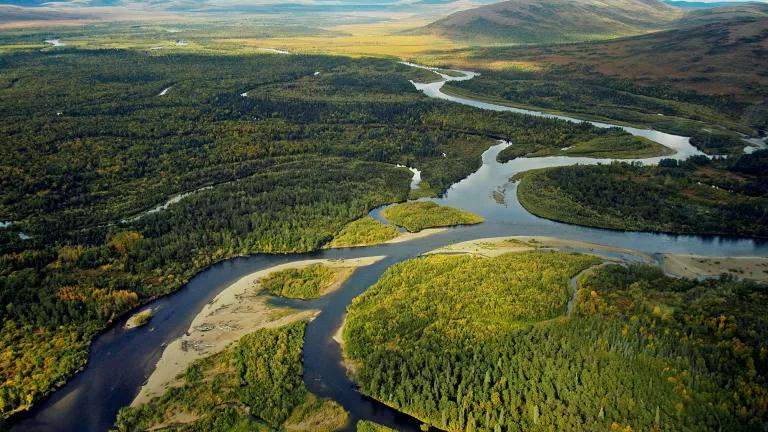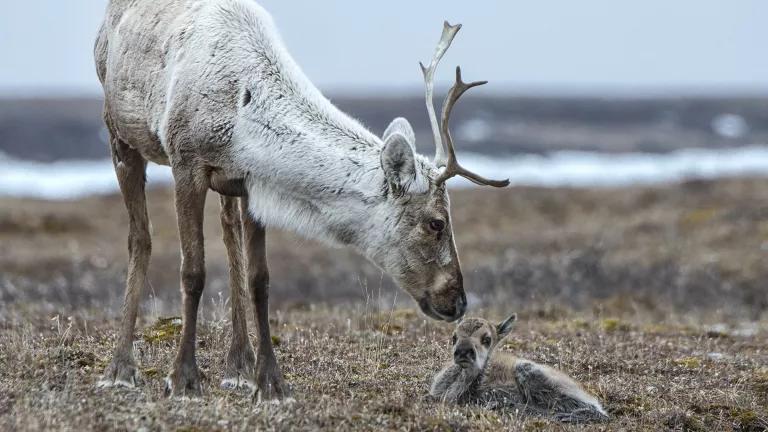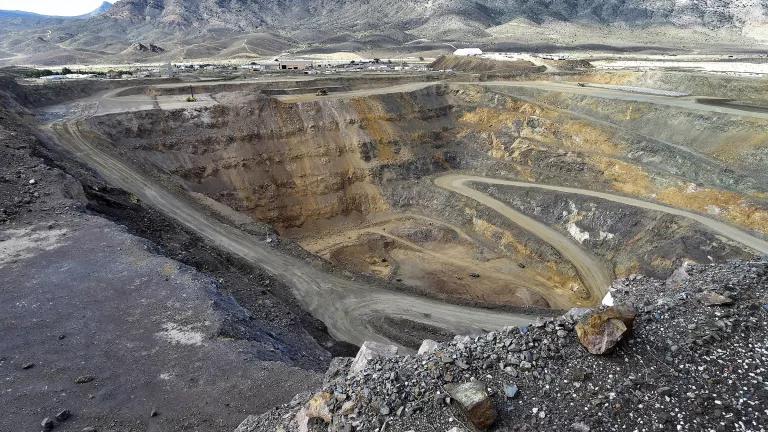Army Corps Pauses Permitting for Pebble Mine Due to Unavoidable Risks

The agency found that the proposed gold and copper mine would cause “unavoidable adverse impacts to aquatic resources” in Alaska’s pristine Bristol Bay watershed that has sustained Indigenous subsistence cultures for thousands of years.
The U.S. Army Corps of Engineers today issued a formal letter to the Pebble Partnership—a wholly owned subsidiary of Northern Dynasty Minerals, the Canadian company proposing to build a massive gold and copper mine at the headwaters of Alaska’s Bristol Bay—giving the company 90 days to propose measures that mitigate the project’s “unavoidable adverse impacts” to water and marine life.
In a press release, the Army Corps went even further, finding the “project, as currently proposed, cannot be permitted under section 404 of the Clean Water Act.” The move marks a significant reversal from the agency’s fast-tracking of the mine over the past two years, including in the environmental impact statement (EIS) it issued in July.
“Mitigation is death for Pebble Mine,” says Joel Reynolds, senior attorney with NRDC’s Nature Program, “because it’s impossible to mitigate the damage this project would inflict on Bristol Bay, its tribes, and the people whose livelihoods and well-being depend on it.”
The recent EIS all but approved the controversial project, disregarding both overwhelming local opposition and the broad consensus of the scientific community. In congressional testimony last fall, Alannah Hurley, the executive director of the United Tribes of Bristol Bay, asked, “Why is it that Bristol Bay’s First People, to whom this federal government owes a sacred trust responsibility, are continually treated as second-class citizens by agencies of the United States? This is a human rights issue. This is an Indigenous People’s issue. This is an environmental justice issue for our people.”
The EIS concluded that Pebble Mine would result in “no measurable harm” to the fishery, but it lacked critical information, underestimated the risks to water and fish, and was insufficient to support compliance with the Clean Water Act. It also proposed a new transportation route that cuts through land owned by Bristol Bay entities that refuse to grant the company access.
One of America’s last great wild places, the Bristol Bay watershed is home to bears, eagles, wolves, and the world’s most prolific salmon fishery, which generates $1.5 billion in annual revenue and supports 14,000 jobs. Salmon have sustained the subsistence culture of Alaska’s Native communities for millennia.
If fully developed, Pebble Mine would require storing 10 billion tons of mining waste indefinitely in a wet and seismically active region—threatening communities and ecosystems that depend on the bay’s abundant wildlife.
“Now that the Corps has finally set the bar that the Clean Water Act and science require, Northern Dynasty can’t meet it,” Reynolds says. “The EPA should veto Pebble and put a stop to this nightmare once and for all.”



